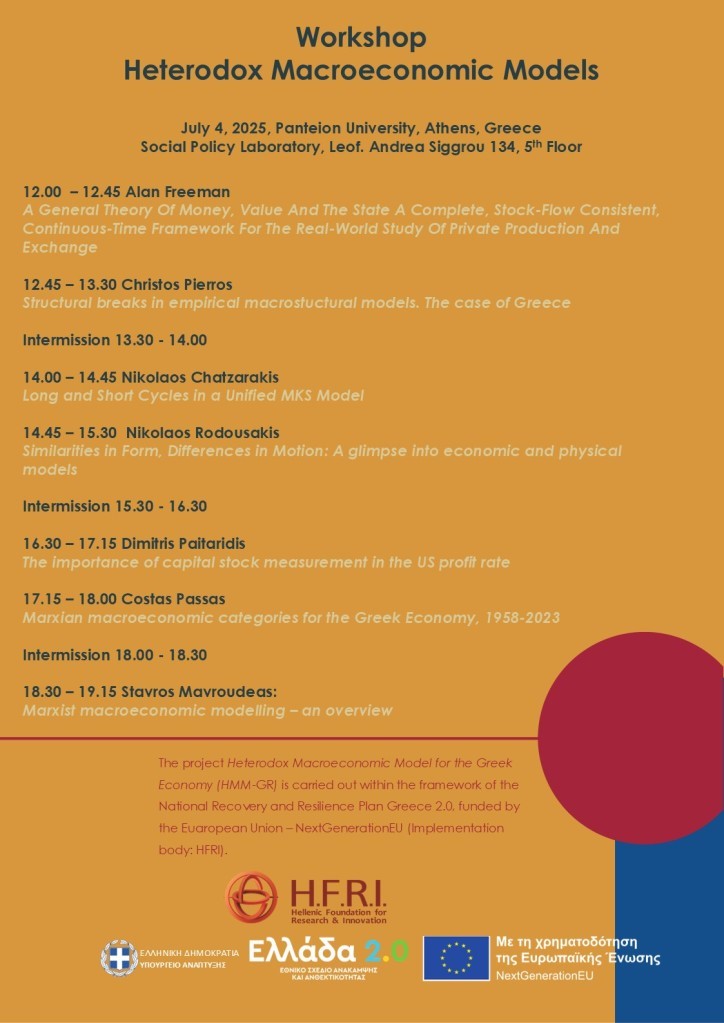WAPE 2020 CfP for Panel: The Cooperative Firm and the transition to a Post-Capitalist Economy



15th WAPE Forum 31-July – 2 August 2020 Panteion University, Athens, Greece
http://politicaleconomy.gr/Wapeforum2020/
https://poleconom.wordpress.com/world-association-of-political-economy-15th-forum-athens-2020/
Call for papers for a Special Session:
‘The Cooperative Firm and the transition to a Post-Capitalist Economy’
The cooperative enterprise dates back to the emergence of capitalism. It may be argued that the two competing institutional forms (capitalist and cooperative firm) emerge almost concurrently, but do not enjoy similar development and growth (diffusion), and that the Cooperative Firm is losing this race.
Cooperatives, nonetheless, have evolved in a variety of institutional forms (worker cooperatives, consumer cooperatives, producer cooperatives, credit cooperatives) and sizes, from small to very large ones, involving different types of membership and levels of participation. They have also formed “higher level” institutions for coordination, cooperation, cooperative education, promotion and so on.
In the era of Late Capitalism, it may be argued that the fortunes of cooperatives and the prospect of a post-capitalist economy – an economy not based on the domination of capital and exploitative (production) relations – are intertwined. As inequalities rise so does the quest for alternative routes to a more equitable, fairer and sustainable society. It may be argued that this is compatible with the values of the cooperative movement.
Looking from the perspective of the cooperative firm, key questions emerge.
- Why did the institution of the cooperative enterprise fall behind in comparison with the capitalist one?
- How has the outlook for the cooperative firm changed in our times, and how does it relate to the emergence of a post-capitalist economy?
- What is the prospect of the cooperative firm in a post-capitalist economy?
- As in the case of the emergence of capitalism from within the feudal economy, could we argue that cooperatives, along with other compatible institutions, form the basis of the new to be born out of the old?
Keywords: theory of the cooperative firm, cooperatives, post-capitalist economy





